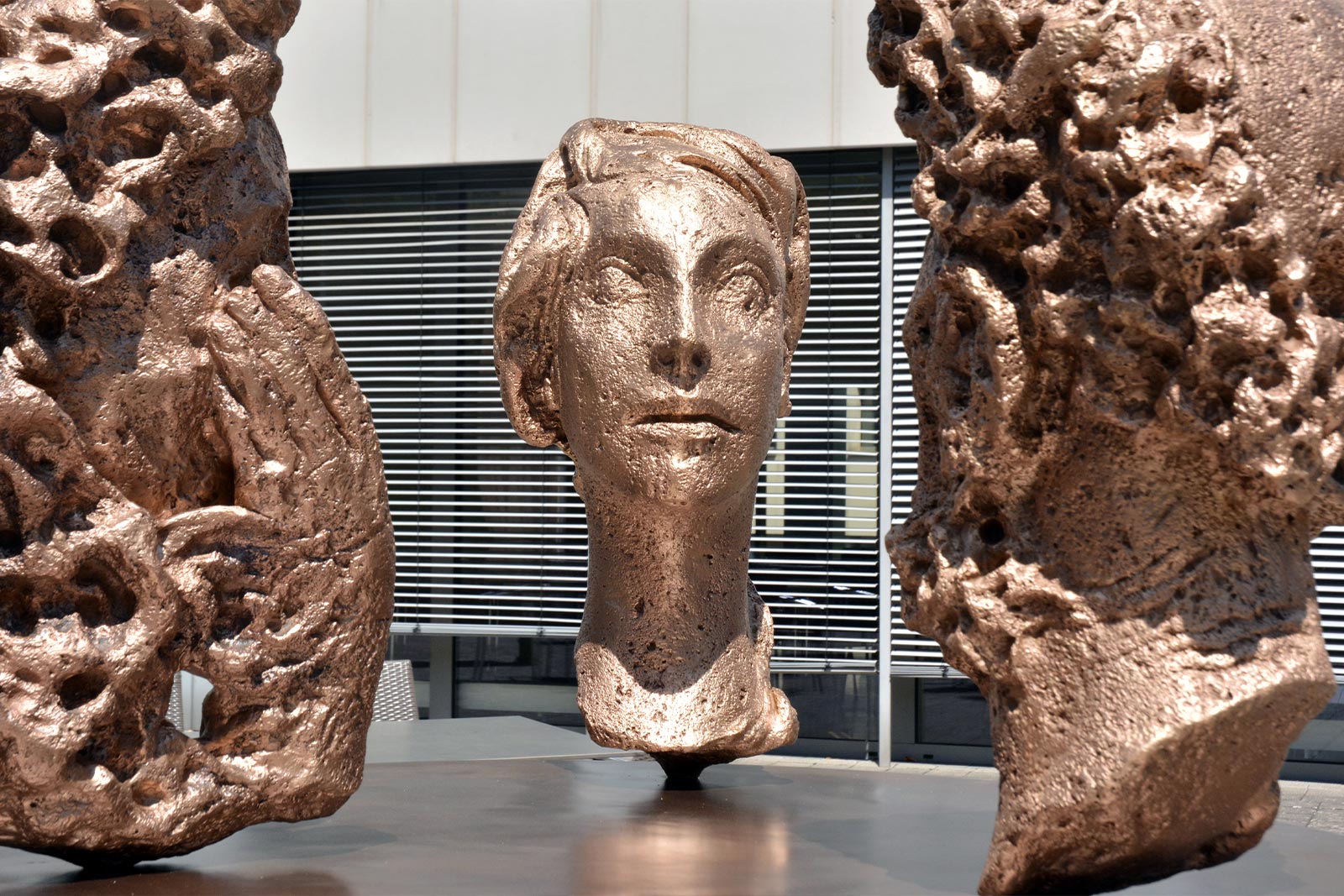Philo-sophia. The love of wisdom.
Which other profession could distil the essence of its work into these words? For every practitioner of law, knowledge, understanding and – above all – justice are essential. They are all intangible qualities and yet every lawyer strives to perfect them.
ERA would like to pay tribute to this timeless characteristic of the legal professions it serves through a new artistic commission in the form of a sculpture to be placed in its inner courtyard.
The idea is to represent a dialogue between philosophers – as today’s lawyers might have been called in ancient times – which transcends geographical and even historical boundaries and thus stands for ERA’s core mission: cross-border, interprofessional and intercultural exchange on the essence of our common rules.
The artist, Giovanni de Angelis, has modelled three rotating heads – one woman, two men – installed on a large bronze plate. The heads represent three outstanding personalities linking us with the fundamentals of our civilisation and our legal order: Ausonius, Hypatia of Alexandria, and Justinian.
Ausonius (310-394), born in Burdigala (Bordeaux), was a rhetor and grammaticus called to the imperial court in Trier by emperor Valentinian in 365, where he worked as quaestor sacri palatii, senior legal authority in charge of drafting legislation. He is the author of the poem Mosella.
Hypatia (355-415) was a Neoplatonist philosopher and the first woman mathematician whose life was recorded in detail. She was regarded as a great teacher and wise counsellor and her works survive to this day. Her murder at the hands of a religious mob made her a “martyr for philosophy”.
Justinian (482-565), who was Eastern Roman emperor from 527, is famous for having ordered the compilation or rewriting of Roman law, the Corpus Iuris Civilis, which is still the basis of civil law in many modern states and hence a common heritage of our European law today.
Many thanks to our supporters:
Ulf Bergquist, Sweden
Ninon Colneric, Germany
Nils-Erik Ceplitis, Luxembourg
Wolfgang Heusel, Germany
Francesco de Angelis, Belgium
Lord Colin Tyre, UK
Rudi Fortson QC, UK
Heinz Weil, France
Daniela Cristina Coman, Romania
Alexander Arabadjiev, Bulgaria
Gregorio Garzón Clariana, Spain
Lorenzo Bruno Molinaro, Italy
Wilhelm Loewenstein, Germany
Krisjanis Rudzitis, Latvia
Hein Hobbelen, Belgium
Nial Fennelly, Ireland
Monique Breton, Luxembourg
Vanessa Knapp, OBE, United Kingdom
Olivier Vrins, Belgium
Peter Cullen, Luxembourg
Constantijn Bakker, Netherlands
José Manuel Ribeiro de Almeida, Portugal
Christine Doerner, Luxembourg
Lisa Molinaro, Italy
Ingo Gunnar Schwan, Germany
Johan Callewaert, France
Nicolae Horatius Dumbrava, Romania
Dominique Arvanitis, Greece
